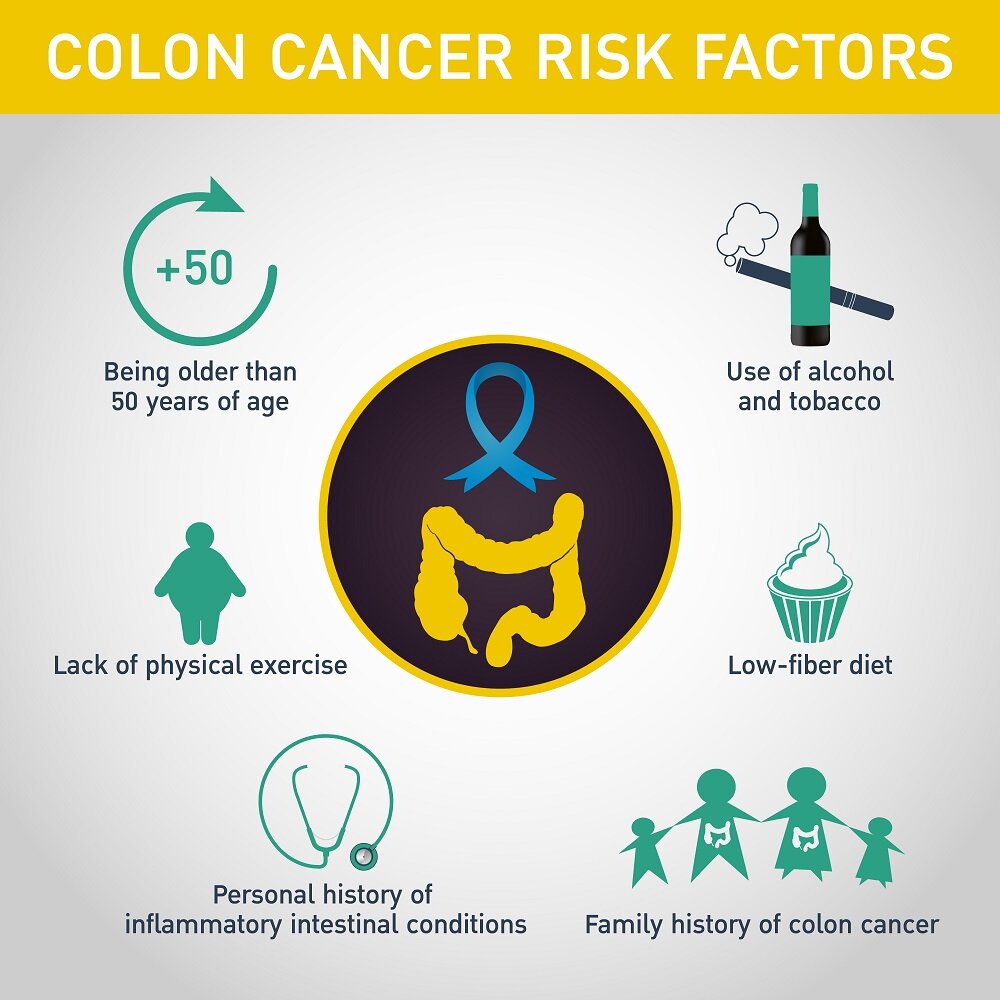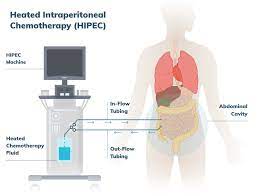Several risk factors can increase the likelihood of developing colon cancer (colorectal cancer). It’s important to note that having one or more risk factors does not guarantee that an individual will develop the disease, and people without these risk factors can still develop colon cancer. The common risk factors for colon cancer include:
- Age: The risk of colon cancer increases with age, with most cases diagnosed in individuals over 50. Screening for colon cancer is recommended for adults starting at age 45 or 50, depending on the guidelines.
- Personal History of Colorectal Polyps or Cancer: Individuals with a history of colorectal polyps, especially adenomatous polyps, or a previous diagnosis of colorectal cancer are at a higher risk.
- Family History: A family history of colon cancer or colorectal polyps, especially in first-degree relatives (parents, siblings, children), increases the risk. Individuals with a strong family history may benefit from earlier or more frequent screening.
- Inherited Genetic Syndromes: Some hereditary conditions, such as Lynch syndrome (hereditary non-polyposis colorectal cancer or HNPCC) and familial adenomatous polyposis (FAP), significantly increase the risk of colon cancer. Genetic testing and counseling may be recommended for individuals with a family history of these syndromes.
- Personal History of Inflammatory Bowel Disease (IBD): Chronic conditions like ulcerative colitis and Crohn’s disease that involve inflammation of the colon can increase the risk of colon cancer.
- Diet: A diet high in red and processed meats and low in fiber-rich foods like fruits, vegetables, and whole grains is associated with a higher risk of colon cancer.
- Obesity: Being overweight or obese, especially with excess abdominal fat, is a known risk factor for colon cancer.
- Physical Inactivity: Lack of regular physical activity or a sedentary lifestyle is associated with an increased risk of colon cancer.
- Tobacco and Alcohol: Smoking and heavy alcohol consumption have been linked to an elevated risk of colon cancer.
- Diabetes: Individuals with type 2 diabetes have a slightly increased risk of colon cancer.
It’s important to discuss your individual risk factors with a healthcare provider, particularly if you have a family history of colon cancer or any other concerning factors.
Early detection and screening are key to preventing and managing colon cancer, as many cases can be treated successfully when caught in the early stages.
Experience exceptional gastrointestinal care with Dr. Chintamani Godbole, your trusted Gastrointestinal Surgeon in Mumbai. Take the first step towards digestive health and schedule your consultation today.




